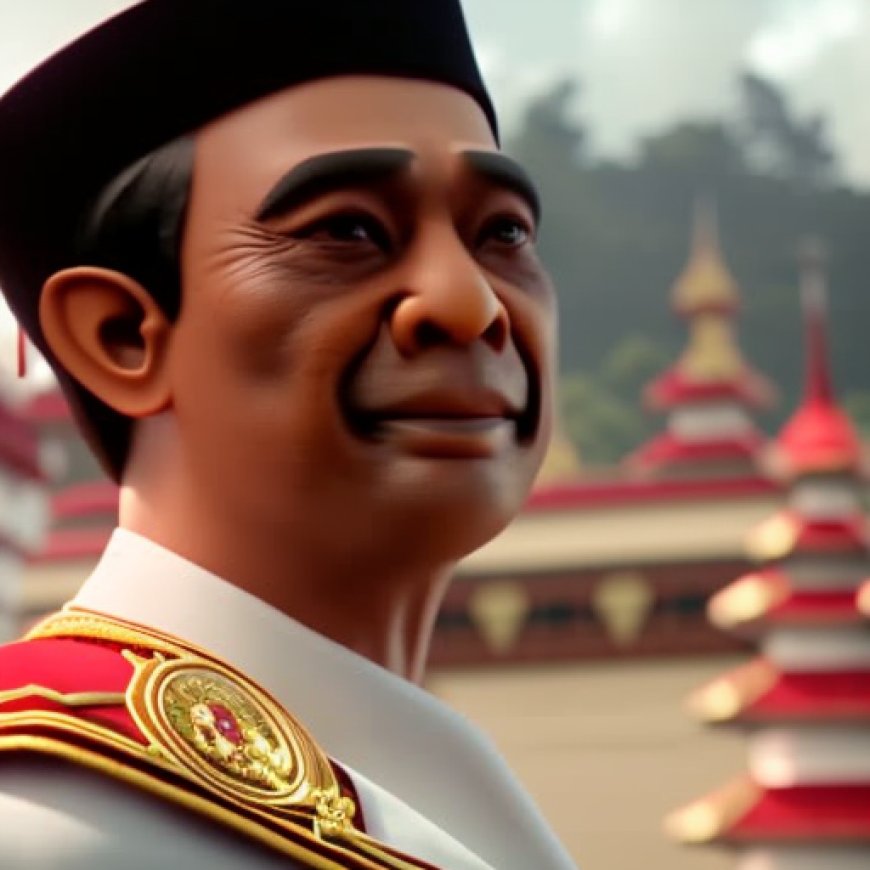Indonesia’s president has a cough, air pollution could be the culprit
Indonesia’s president has a cough, air pollution could be the culprit Al Jazeera English



Indonesian President Jokowi’s Cough Highlights Air Pollution Crisis in Jakarta
Medan, Indonesia – Indonesian President Joko “Jokowi” Widodo has been suffering from a persistent cough for the past month, drawing attention to the severe air pollution crisis in the capital city of Jakarta. The deteriorating air quality in Jakarta, which is among the worst in the world, has been a long-standing issue that has garnered international concern.
Worsening Air Quality and President’s Health
The president’s cough has raised concerns about the impact of air pollution on public health. Indonesia’s Minister of Tourism and Creative Economy, Sandiaga Uno, confirmed that the president has been coughing for almost four weeks and expressed his concern about the situation. Doctors are currently investigating the cause of the cough, with worsening air quality being a possible factor. President Jokowi has urged authorities to take immediate action to address the air pollution crisis within a week.
Jakarta’s Air Pollution Crisis
Jakarta has consistently ranked as one of the most polluted cities in the world due to various factors, including vehicle exhaust emissions, construction projects, biomass burning, coal usage, and the release of aerosols. The city is also affected by smog from surrounding factories and industries. The recent data released by Swiss air quality technology company, IQAir, confirmed that Jakarta has the worst air pollution globally.
The Citizen Lawsuit and Government’s Response
In 2021, President Jokowi lost a landmark “citizen lawsuit” filed by 32 plaintiffs who sought to address the deteriorating air quality in Jakarta. The court ruled that the president and other government officials were responsible for the air pollution crisis and ordered them to improve air quality and revise regulations on air pollution. Despite the court’s decision, the government has appealed multiple times, delaying the implementation of necessary measures.
Criticism and Urgent Action
Critics argue that the government has failed to take practical steps to combat air pollution in Jakarta. The prolonged denial and repeated appeals have frustrated activists and plaintiffs involved in the citizen lawsuit. The Ministry of Health has acknowledged that around 600,000 residents of Jakarta are living with upper respiratory infections. Greenpeace Indonesia has called for urgent action to address the air pollution crisis, emphasizing that it should not require viral attention before action is taken.
Government’s Measures and Public Response
During a recent cabinet meeting, President Jokowi instructed his ministers to create more green spaces in the city and promote hybrid working conditions. However, these measures have been criticized as inadequate by activists and plaintiffs involved in the citizen lawsuit. They argue that the government is shifting responsibility to residents without addressing the role of industries and power plants in contributing to pollution.
Moving the Capital as a Solution?
As Jakarta continues to grapple with its pollution crisis, there are plans to relocate Indonesia’s capital to a new location in East Kalimantan, Borneo. The move aims to address not only air pollution but also other issues such as traffic congestion and groundwater depletion. However, some remain skeptical about this plan, considering it as merely shifting the problem rather than solving it.
It is crucial for the Indonesian government to prioritize the Sustainable Development Goals (SDGs) in its efforts to combat air pollution and protect public health. By taking decisive action and implementing comprehensive measures, Indonesia can work towards achieving SDG 3 (Good Health and Well-being) and SDG 11 (Sustainable Cities and Communities).
SDGs, Targets, and Indicators
1. Which SDGs are addressed or connected to the issues highlighted in the article?
- SDG 3: Good Health and Well-being
- SDG 11: Sustainable Cities and Communities
- SDG 13: Climate Action
2. What specific targets under those SDGs can be identified based on the article’s content?
- SDG 3.9: By 2030, substantially reduce the number of deaths and illnesses from hazardous chemicals and air, water, and soil pollution and contamination.
- SDG 11.6: By 2030, reduce the adverse per capita environmental impact of cities, including by paying special attention to air quality and municipal and other waste management.
- SDG 13.1: Strengthen resilience and adaptive capacity to climate-related hazards and natural disasters in all countries.
3. Are there any indicators mentioned or implied in the article that can be used to measure progress towards the identified targets?
- Indicator for SDG 3.9: Number of deaths and illnesses attributed to air pollution.
- Indicator for SDG 11.6: Ambient air pollution levels in cities.
- Indicator for SDG 13.1: Air quality index or pollution levels related to climate-related hazards.
Table: SDGs, Targets, and Indicators
| SDGs | Targets | Indicators |
|---|---|---|
| SDG 3: Good Health and Well-being | 3.9: By 2030, substantially reduce the number of deaths and illnesses from hazardous chemicals and air, water, and soil pollution and contamination. | Number of deaths and illnesses attributed to air pollution. |
| SDG 11: Sustainable Cities and Communities | 11.6: By 2030, reduce the adverse per capita environmental impact of cities, including by paying special attention to air quality and municipal and other waste management. | Ambient air pollution levels in cities. |
| SDG 13: Climate Action | 13.1: Strengthen resilience and adaptive capacity to climate-related hazards and natural disasters in all countries. | Air quality index or pollution levels related to climate-related hazards. |
Behold! This splendid article springs forth from the wellspring of knowledge, shaped by a wondrous proprietary AI technology that delved into a vast ocean of data, illuminating the path towards the Sustainable Development Goals. Remember that all rights are reserved by SDG Investors LLC, empowering us to champion progress together.
Source: aljazeera.com

Join us, as fellow seekers of change, on a transformative journey at https://sdgtalks.ai/welcome, where you can become a member and actively contribute to shaping a brighter future.







